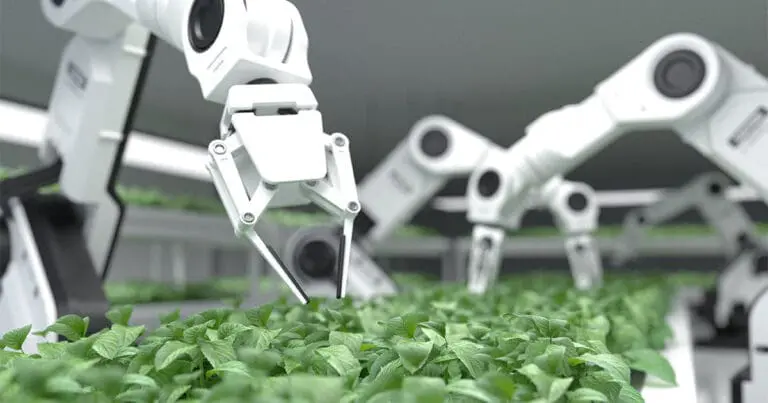The World of Robotics: Industries Leveraging Robotics Engineers

The world of robotics engineering is quickly becoming one of the most sought-after and rapidly evolving industries.
As more businesses turn towards automation, robots are becoming an integral part of many facets of production and project development.
Industries ranging from manufacturing and healthcare to consumer products have been leveraging the expertise of robotics engineers to help increase efficiency and develop better solutions for their needs.
So whether you’re a consumer, a hiring manager, or someone looking to begin a carreer in robotics engineering, it pays to know how robotics engineering is making waves in various industries, and the roles that robots play in these industries.
What is robotics engineering?
Robotics engineering is a field of engineering that deals with the design, construction, and application of robots. It is based on the principles of mechanical engineering, electrical engineering, and computer science.
Robotics engineers use their knowledge of these disciplines to design robots that can perform a wide variety of tasks, from simple repetitive actions to complex decision-making processes.
Overall, robotics engineering is an exciting and rapidly evolving field that has the potential to transform a wide range of industries. As robots become more sophisticated and versatile, the demand for skilled robotics engineers is sure to continue to grow.
Industries hiring robotics engineers
Robotics engineering is growing in popularity in countless industries including manufacturing, agriculture, retail, and transportation.
Robotics engineering in manufacturing
In the manufacturing industry, robots are used to automate a variety of tasks, from welding and assembly to palletizing and packaging. This can lead to greater efficiency and cost savings, as well as improved quality control.
Robots can also be programmed to perform dangerous or difficult tasks that would otherwise put workers at risk.
In addition, the use of robots in manufacturing can reduce labor costs, allowing companies to remain competitive in an increasingly globalized market.
Robotics engineering in healthcare
Robots have become a vital part of the healthcare industry, helping to improve patient care and safety while reducing costs.
Robots can also help with robotic surgery, infection control, and diagnosis and monitoring of patient health.
For instance, robots are being used to monitor patients remotely and provide real-time feedback to doctors and nurses.
Robotics engineering in agriculture
In the agricultural industry, robots are being used to perform a variety of tasks, such as pruning and harvesting crops, planting seeds, and weeding.
Robots can also be used for soil analysis, irrigation management, pesticide application, and other farming operations.
Robotics engineering in retail
In the retail industry, robots are becoming increasingly common. They are being used to help with inventory management, order fulfillment, customer service and more.
They can also provide insights into customer behavior and preferences, allowing retailers to tailor their offerings accordingly.
Robotics engineering in transportation
Robots are also being used in the transportation industry for a variety of tasks such as loading and unloading cargo, inspecting vehicles, and delivering packages.
By leveraging robotics engineering, transportation companies can reduce costs while ensuring that their goods and services are delivered safely and efficiently.
Robotics engineering in construction
In the construction industry, robots are being used for a variety of tasks including surveying, excavating, demolition, and concrete pouring.
By using robots instead of workers in dangerous environments such as high-rise buildings or tunnels, companies can improve worker safety while increasing speed and efficiency.
Examples of in-demand robotics engineer jobs
While there are dozens of different robotics engineering disciplines, some examples of in-demand robotics engineer jobs include robotics research scientists, robotics production engineers, and robotics software developers.
Robotics Research Scientist
Robotics research scientists are responsible for developing and testing new robotic systems, as well as optimizing existing ones.
They need a strong background in robotics engineering, but they also need to be able to think outside the box when it comes to problem-solving.
Robotics Design Engineer
Robotics design engineers are responsible for designing and creating robotic systems from the ground up.
They must have a thorough understanding of mechanical, electrical, and software engineering principles to create robust robotic solutions.
Robotics Production Engineer
Robotics production engineers are responsible for ensuring that robots are manufactured to meet quality standards.
They must be able to troubleshoot and optimize robotic systems, as well as identify potential issues before they become a problem.
Robotics Field Service Technician
Robotics field service technicians are responsible for maintaining and repairing robotic systems in the field.
They must have a deep understanding of both hardware and software components, as well as strong customer service skills.
Robotics Software Developer
Robotics software developers create the code that powers robots.
They must be proficient in one or more programming languages and must be able to create software solutions that are reliable and scalable.
Robotics Mechanical Engineer
Robotics mechanical engineers are responsible for designing, building, and testing robots.
They must have a thorough understanding of mechanics and materials science principles to create robust robotic solutions.
Robotics Integration Engineer
Robotics integration engineers are responsible for ensuring that robotic systems integrate seamlessly with other systems.
They must have a strong background in automation, software engineering, and networking to ensure that robots are able to work together with other components.
Robotics Test Engineer
Robotics test engineers are responsible for testing robotic systems to ensure that they meet performance and quality standards.
They must be able to identify issues quickly and accurately, as well as develop strategies for resolving them.
The future of robotics engineering
Robotics engineering has already had a profound impact on many industries, and its influence is only expected to grow in the coming years.
As robots become increasingly capable, more companies will be able to leverage robotics engineering for automating processes, saving time and money, and improving safety.
As a result, robotics engineers will be in high demand as companies look to capitalize on the potential of robotics technology and ensure that their robots are safe, reliable, and efficient.
Robotics engineering is an exciting and ever-evolving field with limitless possibilities.
Looking to hire top-tier Robotics Engineer Talent? We can help.
Every year, Mondo helps to fill over 2,000 open positions nationwide.
More articles about job searching and industry trends:
- How to Use Digital Transformation to Stay Ahead in the Manufacturing Industry
- Salesforce Admin Jobs to Hire to Get the Most Out of Your Investment
- Benefits of Digital Transformation in Healthcare with Examples
- HR Technology in Hiring: Streamlining Your Recruitment & Onboarding
- 4 Simple Resume Tips to Help You Hire Job Candidates Faster
- What Does a Recruiter Do & Who Do They Work For?
- Will ChatGPT Replace Your Job?
- How to Spot & Avoid Fake Job Posting Scams



